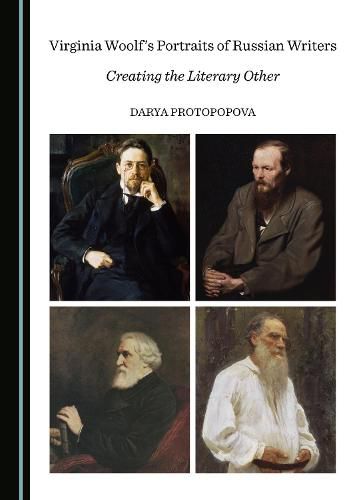Readings Newsletter
Become a Readings Member to make your shopping experience even easier.
Sign in or sign up for free!
You’re not far away from qualifying for FREE standard shipping within Australia
You’ve qualified for FREE standard shipping within Australia
The cart is loading…






Virginia Woolf always stayed ahead of her time. Championing gender equality when women could not vote; publishing authors from Pakistan, France, Austria and other parts of the world, while nationalism in Britain was on the rise; and befriending outcasts and social pariahs. As such, what could have possibly interested her in the works of nineteenth-century Russian writers, austere and, at times, misogynistic thinkers preoccupied with peasants, priests, and paroxysms of the soul? This study explains the chronological and cultural paradox of how classic Russian fiction became crucial to Woolf’s vision of British modernism. We follow Woolf as she begins to learn Russian, invents a character for a story by Dostoevsky, ponders over Sophia Tolstoy’s suicide note, and proclaims Chekhov a truly ‘modern’ writer. The book also examines British modernists’ fascination with Russian art, looking at parallels between Roger Fry’s articles on Russian Post-Impressionists and Woolf’s essays on Chekhov, Dostoevsky, Tolstoy, and Turgenev.
$9.00 standard shipping within Australia
FREE standard shipping within Australia for orders over $100.00
Express & International shipping calculated at checkout
Virginia Woolf always stayed ahead of her time. Championing gender equality when women could not vote; publishing authors from Pakistan, France, Austria and other parts of the world, while nationalism in Britain was on the rise; and befriending outcasts and social pariahs. As such, what could have possibly interested her in the works of nineteenth-century Russian writers, austere and, at times, misogynistic thinkers preoccupied with peasants, priests, and paroxysms of the soul? This study explains the chronological and cultural paradox of how classic Russian fiction became crucial to Woolf’s vision of British modernism. We follow Woolf as she begins to learn Russian, invents a character for a story by Dostoevsky, ponders over Sophia Tolstoy’s suicide note, and proclaims Chekhov a truly ‘modern’ writer. The book also examines British modernists’ fascination with Russian art, looking at parallels between Roger Fry’s articles on Russian Post-Impressionists and Woolf’s essays on Chekhov, Dostoevsky, Tolstoy, and Turgenev.